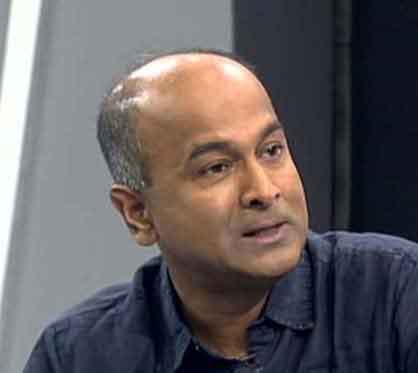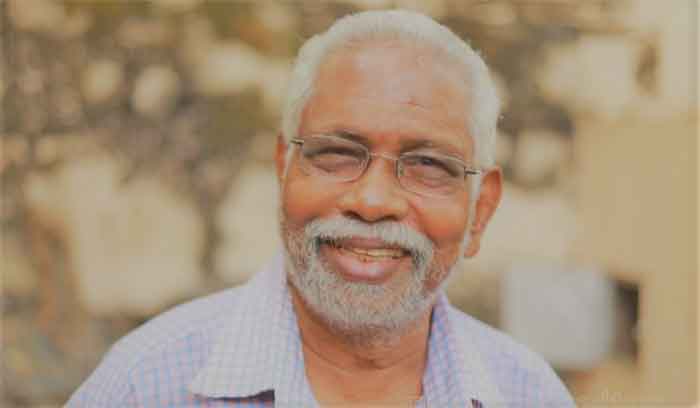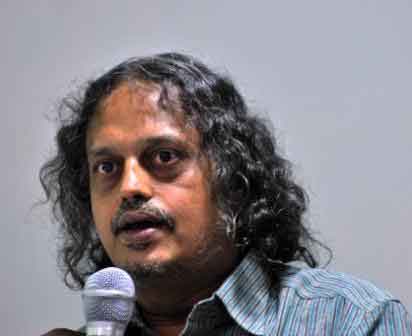
“India is fundamentally a hierarchical, violent and inequalitarian society and its image is spreading like a stain when the Dalits and Muslims are being treated on par in terms of the value of their lives with a history of lynching and killing,” says noted historian Prof. Dilip M. Menon, Mellon Chair and Director, Centre for Indian Studies in Africa, University of the Witwatersrand, Johannesburg. Prof Menon was speaking on “Slave Selves: Some Reflections on Slavery in Kerala” at the ‘Scholars of Eminence’ Web-Lectures programme organised by the Inter University Centre for Social Science Research and Extension (IUCSSRE), Mahatma Gandhi University. He said that Ambedkar had referred to a just society as one in which “ascending sense of reverence and descending sense of contempt” would get dissolved into the “creation of a compassionate society.” But the reality of India was quite different, “in a system of denial of self-worth of certain individual.”
Dr. Menon posed the question whether a slave can be humiliated i.e. whether a slave can feel humiliation. This is related to the further questions of first, whether slaves, given the hegemonic agrestic caste order which dehumanizes them, can possess a sense of self and second, if they do, how can we reconstruct this from the archives.” According to Prof Menon, “We do not hear the voice of the slave in the colonial or missionary records, since they appear to us refracted through the engagement with officials and missionaries focused on their own concerns. Folk literature records stories of injustice, violence, migration and so on, but here again, a subjective sense of self is absent which is central to the idea of humiliation.” He argued that “it is only after emancipation and the availability of a narrative from missionaries, from later caste movements, and then socialism, communism and Dalit movements that the idea of self gets to be constructed and humiliation emerges as a retrospective narrative trope.”

Prof M. Kunhaman, former Professor, Tata Institute of Social Sciences, said in his lecture on “Freedom, Equality, Justice: Perspectives from the Margins” that a global underclass is emerging from the margins and “the defining feature of this class is its aspirational mobility and the commitment to issues of environment, gender justice, marginality etc.” He said that “the scholars emerging from these margins are developing a counter-epistemology and the subaltern groups are engaged in redefining and repositioning themselves.” Prof Kunhaman argued that “the oppressed subaltern class should demand universal property rights and that should be considered as part of Article 21 of the Constitution, enunciating the right to life as entailing the right to livelihood too. Way back in the 1980s, the Supreme Court of India had underlined this.” “There should be a Universal Declaration of Property Rights something like Universal Declaration of Human Rights. However, Prof Kunhaman said, “we have in India graded inequality which Ambedkar had talked about repeatedly juxtaposing the idea of justice.” “The poor have always sought justice. But justice has always evaded them. The poor should not demand justice, nor should they fight for justice because justice comes only with property, and they should fight for property. Justice today is for the rich and powerful. It is for the underclass from the margins who should demand property and their immediate problem is not inequality,” he reminded.
According to Prof Kunhaman, “the state is today a panopticon entity with democratically elected dictators.” “The character of democracy itself is changing. The three factors which sustain Indian democracy are caste, poverty and illiteracy. But the state is becoming increasingly undemocratic and autocratic. In addition to the working class, there is a servile class recruited from the oppressive sections of the society, and it is this class which sustains the oppressive system. A new phenomenon in place is individuation of society and the waning importance of community.”

Speaking on “Freedom and the Project of Anthropology,” Prof. Sundar Sarukkai, Founder of Barefoot Philosophers and visiting faculty at the Centre for Society and Policy, Indian Institute of Science, Bangalore said in his lecture that “slavery is built into the modern system of knowledge production.” He said that in the very notion of freedom, slavery is innate and the nature itself is conceived and reconstructed in the image of a slave.” A discipline like Anthropology has advanced with its scientific modes of enquiry, but it is not “about human” at all. “The task of Anthropology must be to produce a discourse of freedom for the enslaved,” rather than being engaged in mere studies of the slaves. An egalitarian Anthropology is very much in need, he said.
Dr. George Varghese, President of Deleuze and Guattari Studies in India, Prof Vineetha Menon, former Professor of Anthropology, Kannur University, Dr. Sujith Kumar Parayil, Associate Professor, School of Social Sciences, MG University chaired the sessions.
Prof Romila Thapar, Prof Dipesh Chakrabarty, Prof Gopal Guru, Prof Rajan Gurukkal, Prof Michel Tharakan and others participated in the sessions.
The author is Director, Inter University Centre for Social Science Research and Extension (IUCSSRE), Mahatma Gandhi University, Kerala. He also served as Dean of Social Sciences and Professor of International Relations and Politics, Mahatma Gandhi University. He can be contacted at [email protected]
GET COUNTERCURRENTS DAILY NEWSLETTER STRAIGHT TO YOUR INBOX










































